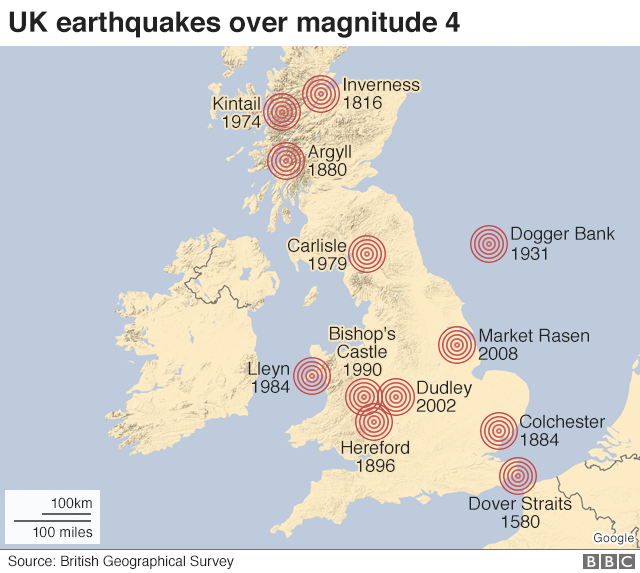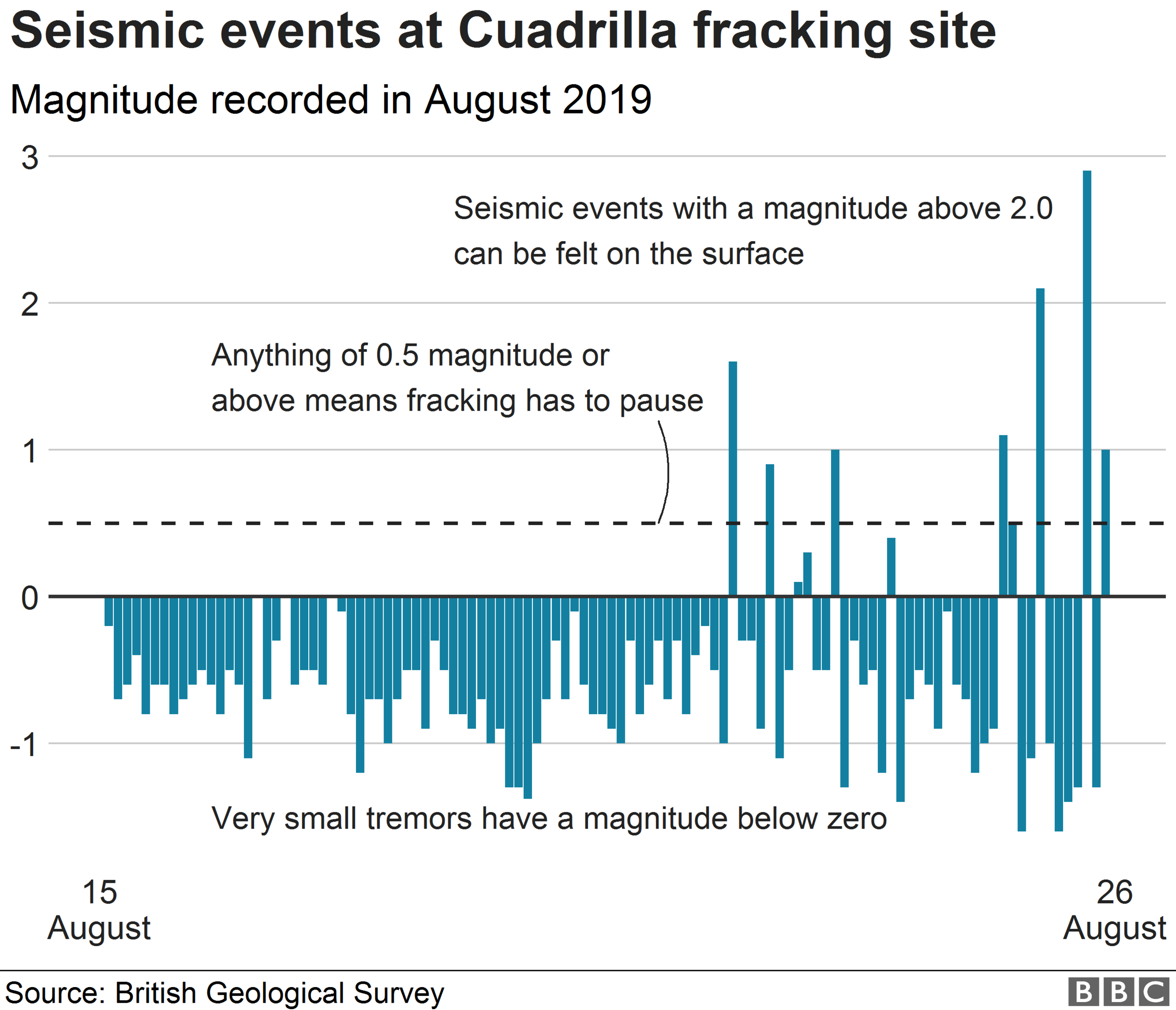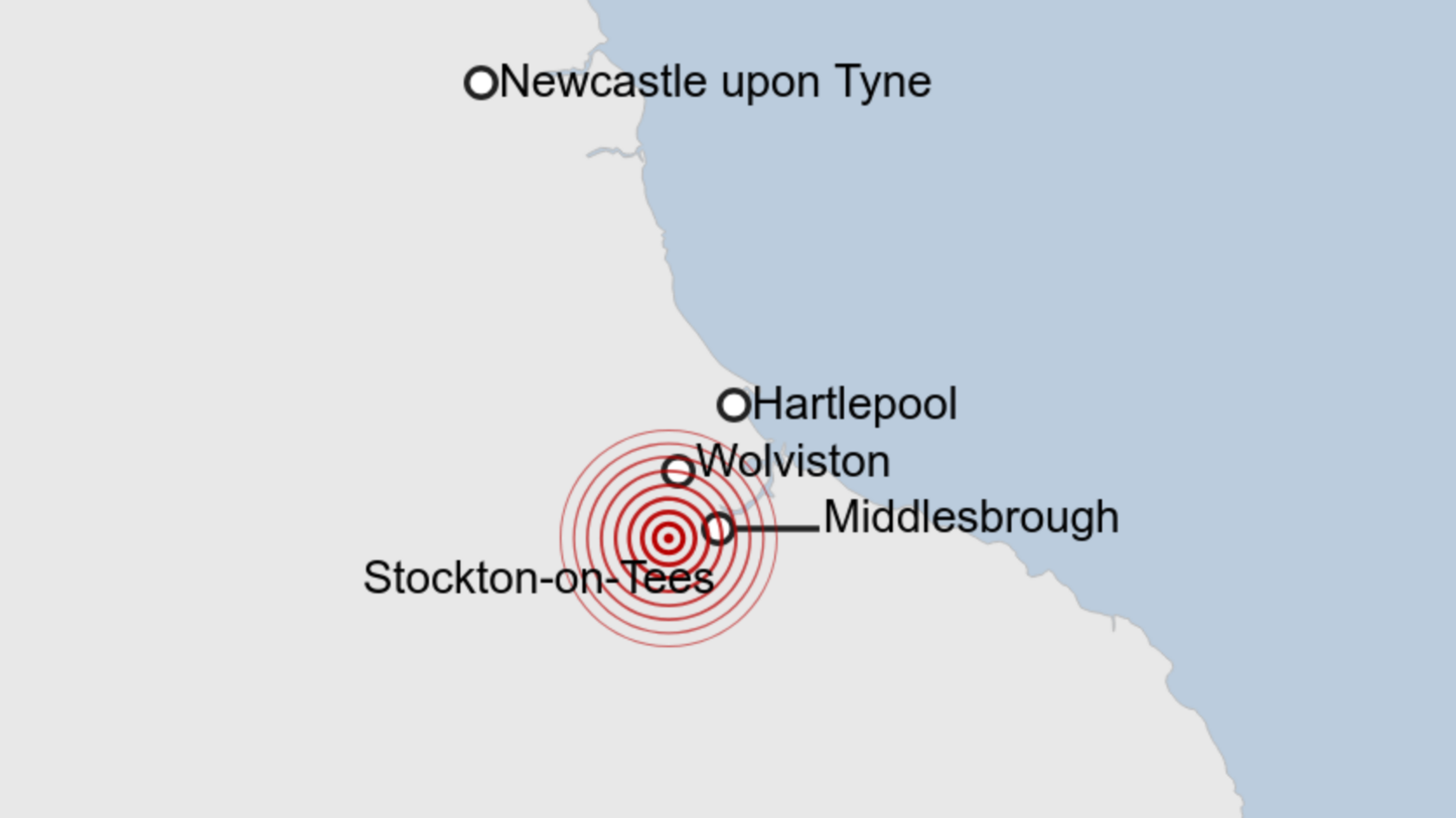Stockton earthquake: How many quakes happen in the UK?
- Published

Residents of Teesside were woken just before 06:00 GMT on Thursday by a 3.0-magnitude earthquake. The "Tees tremor" caused homes to shake, although no injuries were reported.
So, how frequent are earthquakes in the UK and how big can they be?
Are earthquakes common in the UK?
Yes, although most of time people do not notice them.
About 20 to 30 earthquakes are felt by people each year, according to the British Geological Survey (BGS). A few hundred smaller ones are recorded by sensitive instruments.
There have been 28 recorded in the last 50 days, external but only three were noted as being felt by people. Several were beneath the Irish Sea and English Channel.
Astley in Greater Manchester was hit by two in a 40-minute period on 23 December but they were less than 1-magnitude.
Seismologist Glen Ford described the 3.0-magnitude Teesside tremor as a "typical British earthquake" - strong enough to knock over ornaments, but of the kind you would expect to see three times a year. In world terms it was "absolutely tiny".
Allow X content?
This article contains content provided by X. We ask for your permission before anything is loaded, as they may be using cookies and other technologies. You may want to read X’s cookie policy, external and privacy policy, external before accepting. To view this content choose ‘accept and continue’.
How bad can UK earthquakes be?
Very occasionally, UK earthquakes have caused considerable damage.
One of the most destructive UK earthquakes was in the Colchester area in 1884, with 1,200 buildings needing repairs after chimneys collapsed and walls cracked.
The largest UK earthquake ever recorded with modern instruments occurred near the Dogger Bank in 1931, with a magnitude of 6.1. Fortunately, it was 60 miles offshore, but was still powerful enough to cause minor damage to buildings on the east coast of England.
The last earthquake recorded as "significant", external was a 4.6-magnitude quake about 4.7 miles (7.5km) below Cwmllynfell in south Wales in 2018.
The largest earthquake in recent years was a 5.2 quake in Market Rasen, Lincolnshire, in 2008.
Earthquakes appear to occur most frequently in Wales and in the west of Scotland. Seismologists do not know exactly why this is, but it is likely to be because of the location of faults in the Earth's crust.

Why doesn't the UK experience large earthquakes?
Earthquakes are created by energy released through sudden movement along cracks within the Earth.
This energy is released in the form of seismic waves that spread through the Earth and cause the ground's surface to shake.
Most earthquakes happen at the boundaries between the Earth's tectonic plates, where there is the largest amount of stress.
The UK is located in the middle of the Eurasian tectonic plate, so is not subject to significant earthquake activity.
The largest possible earthquake in the UK is around 6.5, research from the BGS suggests. For comparison, the recent Puerto Rico earthquake was 6.4-magnitude, resulting in at least one death and causing island-wide power cuts.
Can fracking cause earthquakes?
Yes. Fracking involves injecting pressurised fluid into the earth. This changes the state of stress in the Earth's crust, making it easier for slips to occur.
In 2019 the government called a halt to shale gas extraction - or fracking - in England amid fears about earthquakes.
Fracking was suspended at the end of August after activity by Cuadrilla Resources at its Preston New Road site in Lancashire caused a 2.9-magnitude earthquake.
It was not possible to predict the probability or size of tremors caused by the practice, the Oil and Gas Authority (OGA) said.

Are earthquakes becoming more frequent?
There is no evidence to suggest natural earthquakes are happening more frequently now.
While there have only been sophisticated instruments recording earthquakes since the middle of the 20th Century, they have long been described in literature and public records.
- Published23 January 2020
